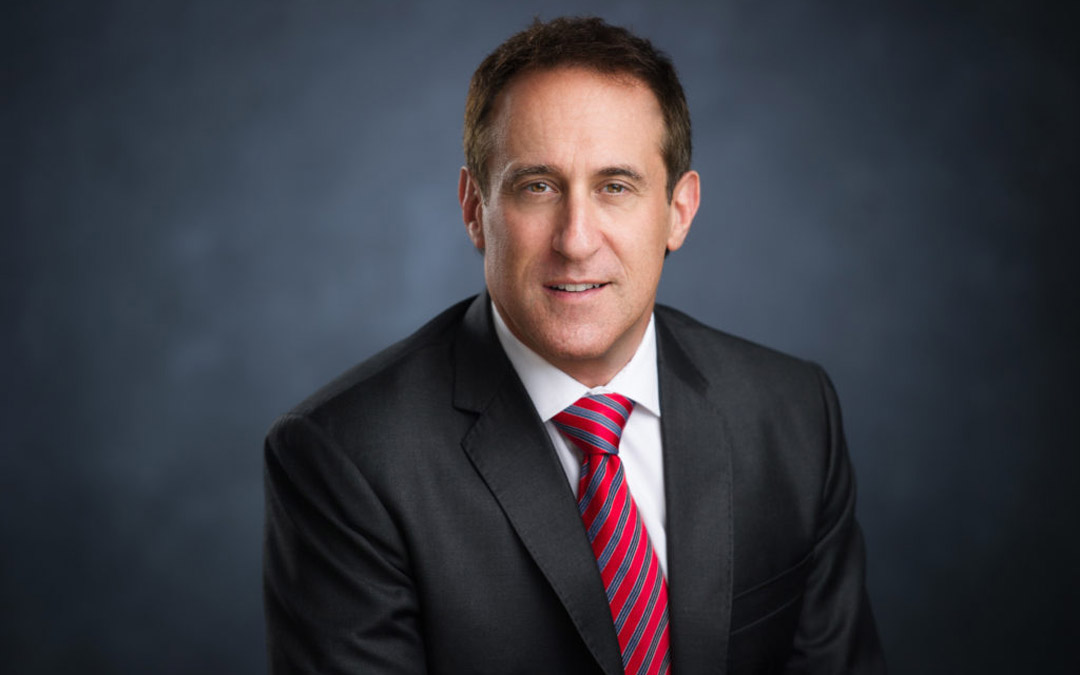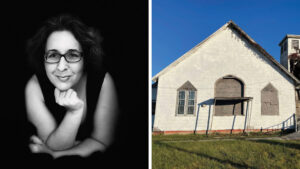Cantor Randy Herman never expected to start his new role at Pikesville’s Chizuk Amuno Congregation outside of the synagogue. But that’s the reality as a result of the coronavirus pandemic.
“It’s tricky getting to know a community virtually, but that’s what I’m doing,” says Cantor Herman. “We’ve had an incredible welcome.
“When we first got here and pulled up to our new house, there were signs all over the door that said, ‘Welcome home, Randy, Nicole and Kaya.’ We cried when we saw those signs, especially since one of the things that struck us most about Chizuk Amuno was the community.”
The Herman family moved to Baltimore from Mount Kisco, N.Y., in July, with Cantor Herman getting right to work focused on the High Holiday services.
While he’s officiated at other services since his arrival at Chizuk Amuno, his Selichot service on Sept. 12 at 8:30 p.m., titled “Opening the Heart,” was his big debut.
“Selichot is the start of the spiritual process of the High Holidays and a way to turn our attention, hearts and souls toward the High Holiday process and season,” says Cantor Herman. “There is this tradition of cantors doing all kinds of musical things since the service is on a Saturday night. My Selichot service is very different. I have a four-piece band that includes musicians on the bass, percussions and guitar. The service is based on traditional liturgy and traditional sounds, combined with contemporary and secular songs that connect with the themes of Selichot.”
While having Selichot look different from what Chizuk Amuno congregants may be used to, Cantor Herman says he is excited to integrate both new and old traditions this High Holiday season.
“I believe in making change cautiously and slowly, and feel the only right way to do so is by getting to know the community and organically move things in a new direction,” says Cantor Herman. “While Selichot may be a change, the High Holidays will have some of the traditional sounds, including the same choral music the congregation is used to. It was suggested to me it would be jarring to have High Holiday services without any choir, and I agree with that.”
Mixing those traditions this season is why Cantor Herman chose to pre-record a few pieces of the Rosh Hashanah and Yom Kippur services that include the congregational choir.
“I want to introduce new stuff while keeping Chizuk Amuno’s traditions,” Cantor Herman says. “I’m really excited about the larger package. In the space of a week, I’ll be presenting and participating with Chizuk Amuno congregants in this wide range of ways, and I’m looking forward to that.”
Cantor Herman’s Selichot service speaks to who he is as a person and his love of music. His grandparents on his father’s side were a singing Vaudevillian team, while his maternal grandparents were Orthodox Jews who fled Eastern Europe after World War II.
“When I was in nursery school, the teacher called my parents and told them I needed to take piano lessons,” says Cantor Herman, 56. “That’s because when my preschool music teacher called in sick and I was told there was going to be no music class. I volunteered to play the songs, and we had music. I was composing songs, playing by ear and taking lessons in elementary schools. I love show business, music and am committed to Judaism, so I put those things together when I became a cantor.”
Prior to becoming a cantor, he was a musician and spent years touring in the United States and abroad. It wasn’t until his 30s that he rediscovered his love for Judaism and began taking classes in Chicago. From there, he went to going to the Jewish Theological Seminary.
For 12 years, Cantor Herman, a native of Grand Rapids, Mich., served Bet Torah in Mt. Kisco before making his way to Baltimore with his wife, Nicole, and 2-year-old daughter, Kaya.
“We felt something magical when we visited,” Cantor Herman says. “There was something special in the water at Chizuk Amuno and Pikesville, and my wife pointed that out to me on our first visit. [Chizuk Amuno’s] Rabbi [Joshua Z.] Gruenberg was another a big reason for the move. He is a special individual and a true rabbi. Rabbi [Deborah] Wechsler and the rest of the Chizuk Amuno clergy are also incredible. There is really no weak link here.”
Cantor Herman is optimistic about his tenure at Chizuk Amuno and proud to follow in the footsteps of such illustrious predecessors as Hazzan Emeritus Emanuel C. Perlman, Farid Dardashti and Abba Yosef Weisgal.
“I’m most looking forward the first Shabbat we are all gathered together in person,” Cantor Herman says. “For me, to meet this community in person that I have gotten to know virtually, and to feel the spiritual energy, I am yearning to hear the community singing with me.”
For information about the High Holidays season at Chizuk Amuno, visit chizukamuno.org/hhd.





